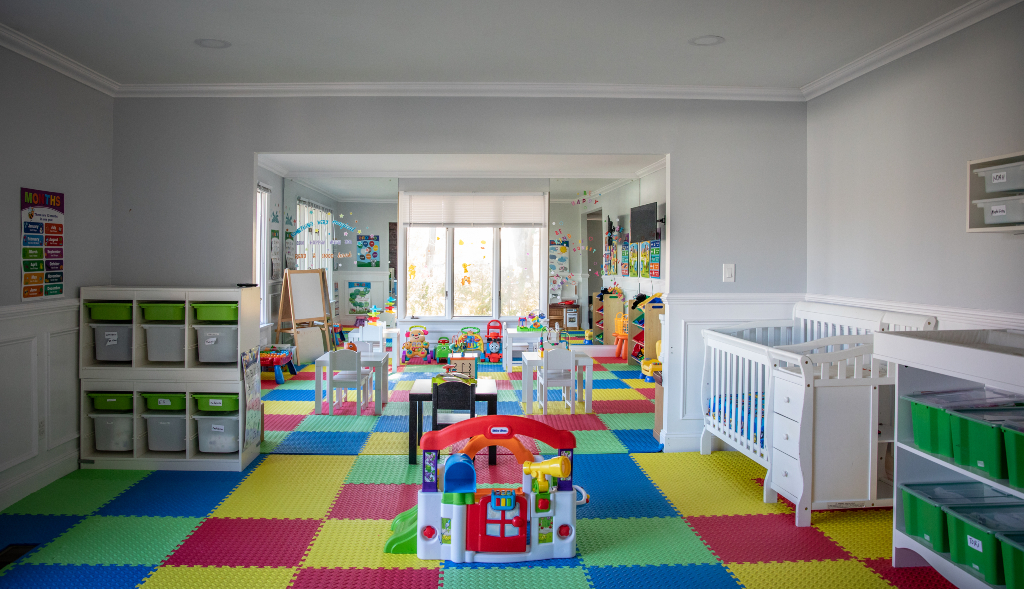Home-Based Daycare or Babysitting Services: A Comprehensive Guide
As the demands of modern life continue to grow, so does the need for reliable and flexible childcare options. Home-based daycare and babysitting services have become increasingly popular as they offer personalized care in a familiar, home-like setting. These services cater to a range of families, from working parents who need full-time care to those seeking occasional help. This comprehensive guide will explore the various aspects of home-based daycare and babysitting services, including the benefits, challenges, regulations, and tips for both providers and parents.
Understanding Home-Based Daycare and Babysitting Services
Home-based daycare is a form of childcare where the caregiver looks after a small group of children in their own home. This type of daycare is often less formal than traditional daycare centres and usually involves fewer children, creating a more intimate and personalized environment.
Babysitting Services, on the other hand, refer to temporary or part-time childcare provided in either the child’s home or the sitter’s home. Unlike daycare, babysitting is typically short-term and may involve occasional or irregular hours, such as evenings or weekends.
Personal Shopping and Styling Services: A Comprehensive Guide
Benefits of Home-Based Daycare
- Personalized Attention Home-based daycare settings typically involve fewer children than larger daycare centres. This lower child-to-caregiver ratio allows for more individualized attention, which can be beneficial for a child’s development. Caregivers can tailor activities to suit each child’s needs, interests, and developmental stage.
- Home-Like Environment The home setting can be comforting for children, especially younger ones who may struggle with the transition from home to a daycare centre. The familiar, cosy atmosphere of a home-based daycare can help ease separation anxiety and provide a sense of security.
- Flexible Hours Many home-based daycare providers offer more flexible hours than traditional daycare centres. This flexibility is particularly beneficial for parents with non-traditional work schedules or those who need care outside of standard operating hours.
- Cost-Effective Home-based daycare is often more affordable than larger daycare centres. The lower overhead costs, such as rent and utilities, typically allow home-based providers to charge lower fees while still offering quality care.
- Stronger Parent-Provider Relationships The intimate setting of a home-based daycare fosters stronger relationships between parents and providers. This close connection can lead to better communication and a more collaborative approach to the child’s care and development.

Benefits of Babysitting Services
- Convenience Babysitters can provide care in the child’s own home, which eliminates the need for parents to drop off and pick up their child from a daycare centre. This convenience is particularly appealing for parents with busy schedules.
- Customizable Care Babysitting services are highly customizable, allowing parents to arrange care that fits their specific needs. Whether it’s a few hours in the evening or full-day care, babysitting services can accommodate various schedules and requirements.
- One-on-One Attention Since babysitters typically care for only one or a few children at a time, they can offer more focused and personalized attention. This one-on-one interaction is especially beneficial for infants and toddlers who need constant supervision.
- Flexibility Babysitters often have flexible availability, making them ideal for last-minute or irregular care needs. Whether it’s for a date night, a work emergency, or just some personal time, a babysitter can be a reliable option.
- Peace of Mind Having a trusted babysitter means that parents can go about their activities with the assurance that their child is in good hands. The familiarity of the home environment also contributes to the child’s comfort and well-being.
Challenges of Home-Based Daycare
- Limited Socialization Opportunities While the small group setting in home-based daycare offers personalized attention, it can also limit children’s socialization opportunities. With fewer peers to interact with, children may miss out on the social learning experiences that larger daycare centres provide.
- Regulatory Compliance Home-based daycare providers must adhere to state and local regulations, which can vary widely. Ensuring compliance with these regulations, such as safety standards and caregiver qualifications, can be challenging and time-consuming.
- Space Limitations The physical space in a home-based daycare may be limited, which can restrict the range of activities and play areas available to children. Providers must be creative in maximizing the use of space to create a safe and stimulating environment.
- Dependence on a Single Caregiver In home-based daycare, the primary caregiver is often the sole person responsible for the children. This dependence on one individual can be a drawback if the caregiver falls ill or is unable to provide care for any reason.
- Less Structured Environment Some parents may prefer the structured environment of a traditional daycare centre, where children follow a consistent routine and have access to a variety of learning activities. Home-based daycare may be less structured, which could be a concern for some families.
Event Planning and Decorating Services: Creating Unforgettable Experiences
Challenges of Babysitting Services
- Finding a Reliable Sitter One of the most significant challenges parents face is finding a reliable and trustworthy babysitter. Recommendations from friends and family can help, but it may still take time to find someone who meets all of the family’s needs and expectations.
- Cost Babysitting services, especially for one-on-one care, can be more expensive on an hourly basis than other forms of childcare. While some parents may find this cost worthwhile for personalized care, it can be a financial burden for others.
- Inconsistency Unlike daycare centres, which operate on a regular schedule, babysitting services can be inconsistent. If a babysitter is unavailable, parents may need to scramble to find alternative care on short notice.
- Limited Activities and Resources Babysitters may not have access to the same resources and activities as a daycare centre or even a home-based daycare provider. This limitation can impact the variety of experiences a child has while under the sitter’s care.
- Safety Concerns Ensuring the safety of children when left with a babysitter is paramount. Parents must thoroughly vet babysitters and may still feel uneasy about leaving their child with someone outside of their immediate family.
Regulations and Licensing
Home-Based Daycare Licensing Licensing requirements for home-based daycare providers vary by state and country. Generally, providers must meet specific criteria, such as completing background checks, obtaining first aid certification, and maintaining a safe environment. Some states also require providers to have a certain level of education or training in child development.
Babysitting Regulations Babysitting services are typically less regulated than home-based daycare, especially for informal or occasional care. However, parents should still ensure that babysitters have the necessary skills and knowledge to care for their children safely. In some cases, parents may prefer to hire babysitters who have undergone background checks or have completed CPR and first aid training.
Setting Up a Home-Based Daycare
- Research Regulations Before starting a home-based daycare, it’s essential to research the licensing and regulatory requirements in your area. Contact your local child care licensing office to find out what steps you need to take to become licensed. This process may involve submitting an application, undergoing inspections, and completing training.
- Create a Safe Environment Safety is a top priority in any childcare setting. Ensure that your home meets safety standards, such as having smoke detectors, fire extinguishers, and childproof locks. Create designated areas for play, meals, and naps, and make sure all hazardous materials are out of reach.
- Develop a Business Plan A well-thought-out business plan can help you establish a successful home-based daycare. Consider factors such as your target market, pricing, hours of operation, and marketing strategies. A business plan will also help you stay organized and focused as you build your daycare.
- Set Up a Daily Routine Consistency is key in childcare, so it’s important to establish a daily routine that includes time for meals, naps, play, and learning activities. A structured routine helps children feel secure and provides a framework for their development.
- Market Your Services To attract clients, you’ll need to market your home-based daycare effectively. Word of mouth is often the most powerful marketing tool, so encourage satisfied parents to recommend your services to others. You can also create flyers, business cards, and a website to promote your daycare.
- Build Relationships with Parents Strong communication with parents is essential for the success of your daycare. Keep parents informed about their child’s progress and any concerns that arise. Regular updates, whether through daily reports or newsletters, help build trust and ensure that parents feel confident in your care.
Starting a Babysitting Service
- Establish Your Services Determine the types of babysitting services you will offer, such as full-time, part-time, evenings, or weekends. Decide whether you will care for children in your home or theirs and whether you are willing to work with children of all ages or specialize in a particular age group.
- Set Your Rates Research the going rates for babysitting services in your area to set competitive pricing. Consider factors such as the number of children you will be caring for, the duration of the care, and any special needs the children may have. Be clear about your rates and payment policies when communicating with potential clients.
- Build a Reputation Building a good reputation is crucial for a successful babysitting service. Start by offering your services to friends, family, and neighbours, and ask for references and reviews. Over time, positive word-of-mouth will help you attract more clients.
- Create a Safety Plan As a babysitter, it’s essential to have a plan in place for emergencies. Make sure you have a list of emergency contacts, including the parents’ phone numbers, the child’s doctor, and local emergency services. Familiarize yourself with basic first aid and CPR, and know the location of the nearest hospital.
- Communicate with Parents Clear communication with parents is vital to providing quality care. Before you start babysitting, discuss the child’s routine, any allergies or special needs, and the parent’s expectations. Keep parents updated on how their child is doing throughout the day or evening.
- Continue Your Education Staying informed about child development and safety can enhance your skills as a babysitter. Consider taking courses in early childhood education, first aid, or CPR. The more knowledge you have, the better equipped you’ll be to handle various situations and provide high-quality care.
Tips for Parents Seeking Childcare Services
- Research and Vet Providers Whether you’re looking for a home-based daycare or a babysitter, thorough research is essential. Ask for recommendations, check references, and read reviews. Make sure the provider has the necessary qualifications and a clean background check.
- Visit the Facility or Meet the Sitter If you’re considering a home-based daycare, visit the provider’s home to assess the environment. Look for cleanliness, safety measures, and age-appropriate toys and activities. If you’re hiring a babysitter, arrange a meeting to get to know them and observe how they interact with your child.
- Ask About Policies and Procedures For home-based daycare, inquire about the provider’s policies on issues such as discipline, screen time, meals, and napping. Make sure their approach aligns with your parenting style. For babysitters, discuss expectations regarding bedtime routines, meal preparation, and other responsibilities.
- Trust Your Instincts Your intuition is a valuable tool when choosing childcare. If something doesn’t feel right, don’t ignore it. It’s important to feel confident and comfortable with the person caring for your child.
- Maintain Open Communication Once you’ve chosen a provider, maintain open lines of communication. Regularly check in with the caregiver to discuss your child’s progress and any concerns. Your involvement will help ensure a positive experience for your child.

Home-based daycare and babysitting services offer flexible, personalized childcare options that cater to the diverse needs of families. While each option has its benefits and challenges, both can provide a nurturing and supportive environment for children. Whether you are a parent seeking care or a provider looking to start a business, understanding the ins and outs of these services is crucial to making informed decisions. By carefully considering factors such as licensing, safety, and communication, you can ensure that the childcare experience is positive and enriching for everyone involved.
Home Cleaning and Organization Services: A Comprehensive Guide to Starting and Growing Your Business




Post Comment